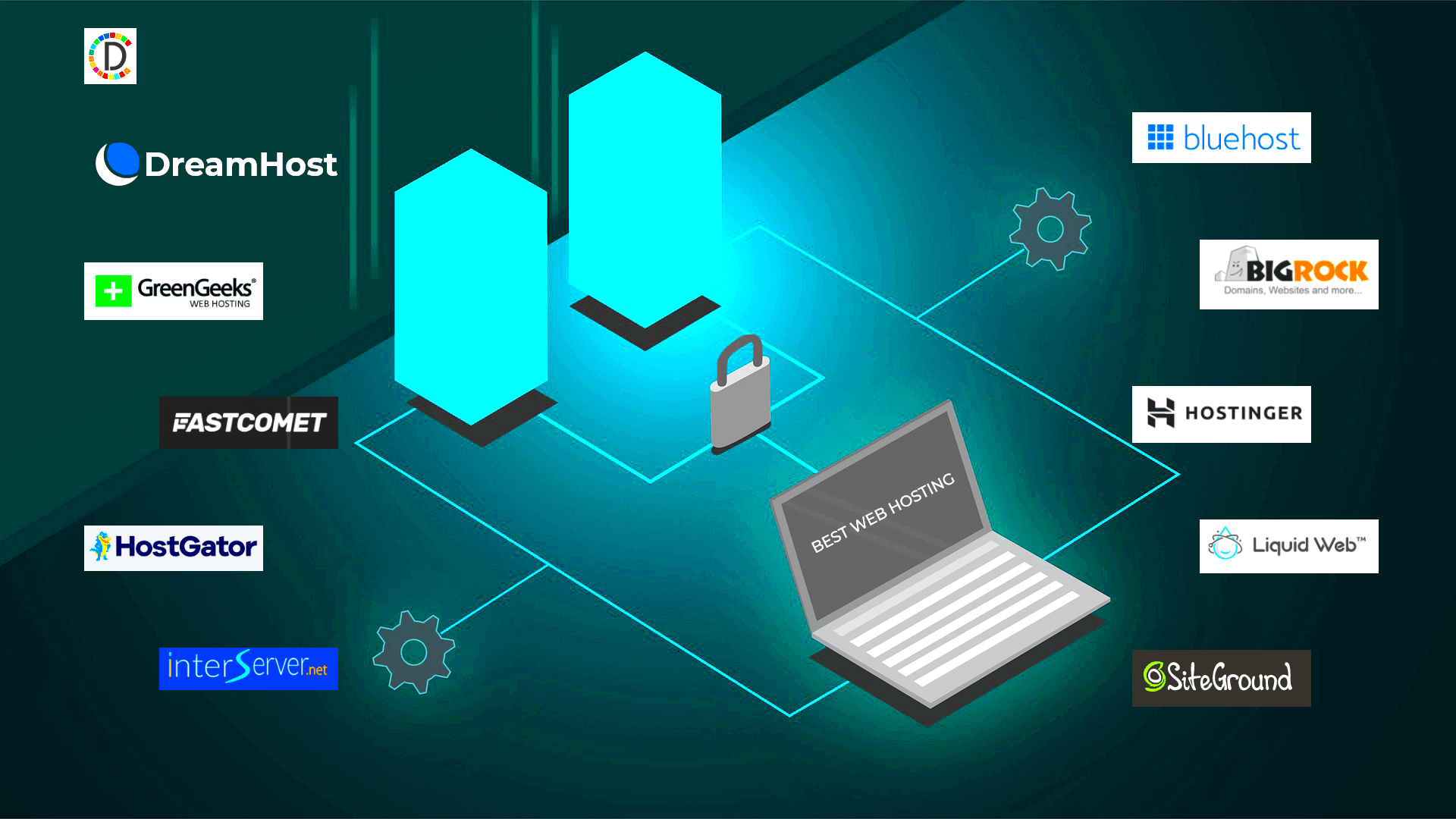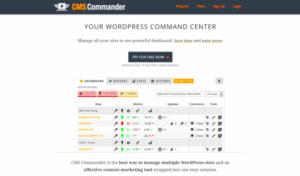When it comes to launching your small business online, one of the first decisions you’ll need to make is about website hosting. Think of hosting as the home for your website on the internet. Just like a physical store needs a good location to attract customers, your website needs a reliable host to ensure it’s accessible and performs well. In this blog post, we’ll explore various hosting options tailored for small businesses, helping you find the perfect fit to get your business off the ground.
Importance of Choosing the Right Hosting Solution

Choosing the right hosting solution is crucial for your small business for several reasons:
- Performance: A good hosting service ensures your website loads quickly, which is essential as slow sites can turn visitors away.
- Reliability: You want a host that offers high uptime rates. If your site is frequently down, you lose potential customers.
- Security: With the rise of cyber threats, a reliable hosting provider should offer solid security measures to protect your data and customer information.
- Customer Support: Look for a host that provides 24/7 customer support. Any issues with your website can impact your business, so you want help available at any moment.
- Scalability: As your business grows, your hosting needs may change. A flexible hosting solution allows you to easily upgrade your plan as your site traffic increases.
- Cost-effectiveness: Budget is always a consideration for small businesses. Choosing a hosting plan that fits your budget without sacrificing quality is essential.
In summary, the right hosting solution not only impacts your website’s performance but also enhances user experience and can significantly influence your business’s online success. So, spending time to conduct your research and weigh your options is well worth it!
Types of Website Hosting Options

When you’re on the hunt for the best website hosting options for your small business, you’ll encounter various types of hosting solutions. Each type has its own unique benefits suited for different needs. Let’s break them down!
- Shared Hosting: This is one of the most popular and budget-friendly options available. With shared hosting, your website shares server resources with other websites. It’s perfect for small businesses that don’t expect high traffic at the start.
- Dedicated Hosting: If your business grows and you require more control and resources, dedicated hosting might be the way to go. Here, you get an entire server for yourself, which means better performance and increased security. However, this comes at a higher cost.
- VPS Hosting: Standing for Virtual Private Server, VPS hosting strikes a balance between shared and dedicated hosting. It provides a dedicated portion of server resources, allowing for better performance and flexibility while still being more affordable than dedicated hosting.
- Cloud Hosting: This type utilizes a network of virtual servers in the cloud, making your website less reliant on a single server. Cloud hosting is scalable and can handle sudden spikes in traffic seamlessly, which is great for growing businesses.
- Managed WordPress Hosting: If you’re building a WordPress site, consider this option. Managed WordPress hosting takes care of all the technical aspects, allowing you to focus on creating amazing content without worrying about updates or security.
Choosing the right hosting type largely depends on your specific needs, budget, and how you foresee your business evolving.
Shared Hosting: A Cost-Effective Solution

Shared hosting is like renting an apartment in a busy building—you’ve got your own space but share resources with your neighbors. It’s an incredibly popular choice for small businesses, and it’s easy to see why!
Here are some key advantages of shared hosting:
- Affordability: Shared hosting typically costs as little as a few dollars a month. This makes it a great choice for startups and small enterprises that may not have a hefty budget.
- User-Friendly: Most shared hosting providers offer user-friendly interfaces and one-click installations. This means you don’t need to be a tech wizard to get your website up and running.
- Support Services: Many shared hosting services come with robust customer support, helping you manage any issues that arise without pulling your hair out.
- Easy Scalability: As your business grows, many shared hosting plans allow you to upgrade easily to more powerful hosting types without major disruptions.
However, shared hosting does come with some limitations:
- Resource Sharing: Since you’re sharing a server with other websites, if one site experiences a traffic spike, it might slow down the performance for everyone.
- Less Control: You won’t have as much control over server settings, which can be a drawback for businesses that need specific configurations.
Overall, shared hosting can be a fantastic starting point for small businesses. It allows you to focus on building your brand and generating content while leaving the technical overhead to the professionals.
VPS Hosting: Balancing Cost and Control
When your small business starts to gain traction, you may find that shared hosting isn’t quite cutting it anymore. This is where Virtual Private Server (VPS) Hosting comes into play. VPS hosting provides you with a dedicated section of a physical server, offering more control and power than shared hosting while still being budget-friendly.
So, what exactly makes VPS hosting a compelling choice for small businesses? Let’s break it down:
- Enhanced Performance: Unlike shared hosting, where your resources are divided among multiple users, VPS provides dedicated resources. This means your website can handle more traffic without slowing down.
- Greater Control: With VPS, you get root access. This means you can install custom software, control security settings, and manage your server environment tailored to your needs.
- Scalability: As your business grows, so can your hosting plan. Most VPS services allow you to upgrade your resources with just a few clicks when you need more power.
- Cost-Effective: VPS strikes a great balance between the affordability of shared hosting and the power of dedicated hosting. You get more bang for your buck!
However, it’s essential to be aware that VPS hosting does require a bit more technical know-how than shared hosting. You’ll need to manage your own server, or at least be comfortable navigating technical settings. For many small businesses, this trade-off is well worth it for the increased performance and flexibility.
Dedicated Hosting: For Larger Businesses
When your small business grows to a point where it needs the absolute best in terms of performance, Dedicated Hosting may be your best option. As the name suggests, with dedicated hosting, you rent an entire server that’s solely dedicated to your website. This means you have total control over the server’s resources and settings.
Let’s take a closer look at why dedicated hosting may be suitable for larger businesses:
- Ultimate Performance: Since you’re not sharing resources, dedicated hosting provides the best performance for high-traffic websites. It can handle large volumes of traffic without compromising speed.
- Customization: With full control over the server, you can customize it according to your specific needs, whether it’s installing unique software or configuring complex security protocols.
- Security: Data breaches are becoming increasingly common, and with dedicated hosting, you can implement stronger security measures tailored to your business requirements.
- Reliable Support: Most dedicated hosting providers also offer premium technical support, available around the clock, to help you resolve any issues that may arise.
On the downside, dedicated hosting can be quite expensive compared to other options. It also requires a certain level of technical expertise, making it more suitable for larger businesses that have the resources to manage it effectively. If your business demands the best in performance, dedicated hosting could be the right fit for you!
7. Cloud Hosting: Scalability and Reliability
When it comes to hosting your small business website, cloud hosting is an option that stands out, especially for its scalability and reliability. Imagine being able to elevate your resources as your business grows without any headaches—that’s the beauty of cloud hosting!
With cloud hosting, your website operates on a network of interconnected servers rather than a single server. This means:
- Flexibility: You can easily scale your resources up or down based on traffic fluctuations. Whether you’re experiencing a surge during a promotional event or a slow season, cloud hosting can adapt accordingly.
- Redundancy: Because your website is hosted across multiple servers, if one server goes down, others can pick up the slack. This leads to increased uptime and fewer interruptions for your visitors.
- Cost-effectiveness: You only pay for the resources you use, which means no overspending on unused capacity.
Moreover, cloud hosting generally comes with robust security features, including data encryption and regular backups. This layer of protection gives small business owners peace of mind, knowing that their data is secure and accessible.
In short, if you’re looking for a hosting solution that can grow with you and provide reliable performance, cloud hosting could be the perfect choice. It’s like having a personal assistant that’s always ready to scale up when you need a bit more help!
8. Managed WordPress Hosting: Simplifying Site Management
If your small business website runs on WordPress, managed WordPress hosting might just be your saving grace. This type of hosting is specifically designed for WordPress sites, providing tailored support and features that simplify your site management.
What’s so special about managed WordPress hosting? Let’s dive into the benefits:
- Optimized Performance: Managed hosting providers usually have super-speed servers that are optimized for WordPress, leading to faster page loading times and a better user experience.
- Automatic Updates: Forget about the hassle of manually updating WordPress plugins and themes. Managed hosting takes care of this for you, ensuring that your site remains compatible with the latest versions and secure from vulnerabilities.
- Top-notch Security: Providers often implement robust security measures, including firewalls, malware scanning, and daily backups—everything you need to keep your website safe.
- Expert Support: If you encounter any issues, you’ll have access to a support team that specializes in WordPress, meaning you can get help tailored specifically to your platform.
Especially for small business owners who may not have the technical know-how, managed WordPress hosting simplifies the entire process of running a website. You can focus on what you do best—growing your business—while the hosting experts handle the technical stuff. It’s like having a WordPress concierge just for you!
Factors to Consider When Choosing a Hosting Provider
When it comes to selecting the right hosting provider for your small business, it’s essential to take several factors into account. A good hosting service is the foundation of your online presence and can make or break your website’s performance. Here are some crucial elements you should consider:
- Reliability and Uptime: Choose a provider with an uptime guarantee of 99.9% or higher. Downtime means lost revenue, so you want a host that keeps your site accessible at all times.
- Customer Support: Look for 24/7 customer support via various channels like live chat, email, and phone. Quick, effective support can save you time and stress when something goes wrong.
- Scalability: Your business may grow, and your hosting needs can change. Opt for a provider that allows you to easily upgrade your plan as your traffic and resource requirements increase.
- Security Features: Ensure that the hosting provider offers robust security features like SSL certificates, DDoS protection, and regular backups to safeguard your data.
- Pricing: Compare pricing structures carefully, considering both introductory and renewal prices. Look for hidden fees and assess whether the features offered justify the cost.
- Type of Hosting: Consider what type of hosting (shared, VPS, dedicated, or cloud) is best for your business needs. Each type has its pros and cons based on your website’s size and traffic.
By evaluating these factors carefully, you can make a more informed choice when selecting a hosting provider that aligns with your business goals.
Top Recommended Hosting Providers for Small Businesses
Choosing the right hosting provider may feel overwhelming with so many options available. To make it easier for you, we’ve rounded up some of the top recommended hosting providers ideal for small businesses:
| Provider | Key Features | Starting Price | Best For |
|---|---|---|---|
| Bluehost | WordPress integration, free domain, 24/7 support | $2.95/month | WordPress users |
| SiteGround | Strong security, fast loading times, excellent support | $3.99/month | Businesses focused on performance |
| HostGator | Flexible plans, easy website builder, 45-day money-back guarantee | $2.75/month | Budget-conscious startups |
| A2 Hosting | Turbo servers for speed, anytime money-back guarantee | $2.99/month | Speed enthusiasts |
| DreamHost | Unlimited bandwidth, automated backups, 97-day money-back guarantee | $2.59/month | Long-term commitments |
These providers have proven to be reliable and feature-rich, giving you the tools you need to create and maintain a strong online presence. Always do your due diligence by reading reviews and trying out their customer support to ensure they meet your expectations. Happy hosting!
How to Migrate Your Site to a New Host
Don’t worry if you’re feeling apprehensive about migrating your website to a new host; it’s a common concern! The process may seem daunting, but with a little planning, you can make the transition smooth and hassle-free. Here’s a step-by-step guide to help you navigate this journey:
- Choose Your New Hosting Provider: Start by researching and selecting a new hosting provider that fits your business needs. Look for factors such as uptime, customer support, and scalability.
- Backup Your Website: Before making any big moves, backup your entire website. This includes files, databases, and any other important data. Use a plugin or your hosting provider’s backup tools for this.
- Export Your Database: If you’re using a database-driven site (like WordPress), export your database through phpMyAdmin or a similar tool.
- Upload Files to the New Host: Next, upload your website files to your new host via FTP or through the file manager. Make sure to replicate the folder structure of your old host.
- Import the Database: Once your files are uploaded, import your previously exported database into your new hosting account.
- Update Configurations: Adjust any configuration files to ensure they point to the new database and paths. This step is crucial for maintaining functionality.
- Test Your Website: Before updating the domain’s DNS settings, test your website using a temporary URL or your new host’s IP address. Check for any broken links or missing content.
- Change DNS Settings: Finally, update the domain’s DNS settings to point to your new host. Be patient; DNS changes can take several hours to propagate.
Following these steps will make migrating your website to a new host an organized process, minimizing downtime and stress. Happy migrating!
Conclusion: Choosing the Best Hosting Option for Your Needs
As we’ve explored throughout this guide, picking the best hosting option for your small business is not a one-size-fits-all scenario. It requires a bit of research, understanding your specific needs, and even considering your future growth. Here are some factors to keep in mind as you make your decision:
- Understanding Your Requirements: Know what type of website you’re running. Is it a simple blog, an e-commerce site, or a portfolio? Your hosting needs will vary accordingly.
- Scalability: As your business grows, your traffic will likely increase. Choose a provider that allows easy upgrades and scalability.
- Budget: Consider what you can afford. Don’t just look at the initial cost; factor in renewals and any additional fees that might spring up later on.
- Support: 24/7 customer support is a must. When things go wrong (and they might), you’ll want a reliable team to help you resolve issues immediately.
- Security Features: Look for providers that offer strong security features like SSL certificates, daily backups, and malware protection to keep your website safe.
Remember, the best hosting option is one that aligns with your business goals and provides you with a reliable foundation to build on. Take your time, weigh your options, and choose wisely. Your website’s success can hinge on this critical decision!



